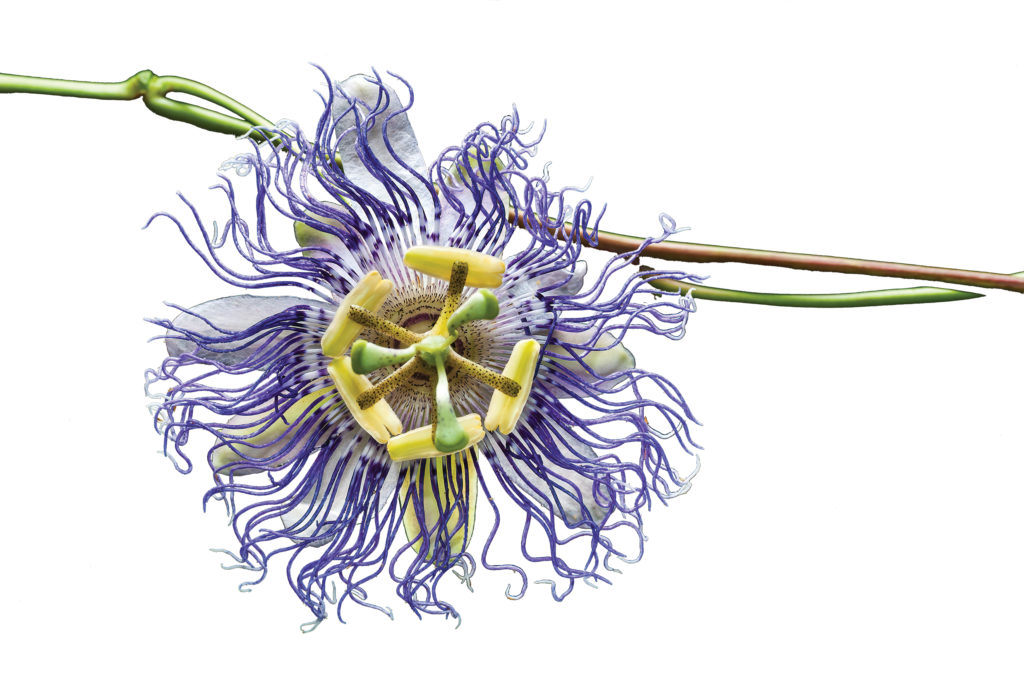
By Katie Jackson
During these past months of uncertainty and stress, many of us have come to appreciate the restorative power of plants. It’s an appreciation worth cultivating.
That’s because plants have so much to offer us. The simple act of tending them in our own yards and houses or admiring them in the landscapes around us is quite therapeutic, but the plants themselves are also filled with curative compounds.
Most of us know that such beloved herbs such as mint, rosemary, sage, lavender, basil and thyme have both culinary and medicinal uses. However, we may not know that ornamental plants (camellias, roses, hollies, as well as annual and perennial flowers, grasses and the like) also possess medicinal properties. Nor might we realize that common “volunteer” (some would say “weedy”) native and non-native plants — from pine and sweet gum trees to goldenrod, dandelion and chickweed — have redeeming medicinal uses, too.
In fact, according to medicinal plant expert Tia Gonzales, “You can’t walk outside your house and touch a plant that doesn’t have some medicinal properties. It’s just a matter of learning to recognize and appreciate them.”
As a horticulturist, herbalist and manager/curator of Auburn University’s Medicinal Plant Collection, Tia has a deep understanding of, and contagious passion for, the curative powers of plants. And this year in particular, can’t we all use a dose of plant medicine? That’s why I asked her to suggest a few helpful medicinal plants that all of us can easily grow and use.
Naming just a few isn’t easy, but Tia narrowed it down to these five plants, all of which can be used to brew simple teas for the treatment of insomnia and anxiety, common problems especially during these stressful times.
Passionflower (Passiflora incarnata; also known as maypop) is native to Alabama and grows well pretty much anywhere. It has beautiful flowers, is a host plant for Gulf fritillary butterflies and bees love it, too.
Catnip (Nepeta cataria), a member of the mint family, tolerates a wide range of growing conditions and can be grown in beds or containers; however, if you want to keep the cats out of it, Tia suggests planting it in a hanging basket. It’s also great mosquito repellent.
Lemon balm (Melissa officinalis), another mint family member, is also easy to grow and it can repel mosquitoes. In addition to using it as a tea, Tia said it’s ideal for use as a relaxing bath that calms anxious adults and wound-up children.
Lavender has many fine qualities, but it can be hard to grow in Alabama unless you use Lavandula x intermedia varieties and cultivars, which are suited to our soils and weather. Once established, though, it’s beautiful and can be used for teas, as a flavoring, for aromatherapy and as an essential oil.
Chamomile is commonly used as sleep-promoting tea, but it has many other uses, including lightening and conditioning hair. Plants may be of German (Matricaria recutita) or Roman (Chamaemelum nobile, also known as English and Russian chamomile) lineage but both can be grown in Alabama. However, Tia said they don’t like the heat and will do best in cooler seasons.
To learn more about growing and processing these and other medicinal plants, Tia suggested two books: Making Plant Medicine by Richo Cech and Rodale’s Twenty-first Century Herbal Guide by Michael Balick. Auburn’s Medicinal Plant Collection garden is currently closed for relocation but when it reopens, Tia will host frequent talks, tours and plant sales, details of which will be posted on its Facebook page.
OCTOBER TIPS
- Plant cool-season vegetables such as leafy greens and root crops.
- Plant shrubs, trees and spring-blooming bulbs.
- Collect and save seed from your favorite flowers, herbs and vegetables.
- Clean and store summer gardening tools and equipment.
- Refresh mulch around trees and shrubs.
- Keep bird feeders and baths full.
Katie Jackson is a freelance writer and editor based in Opelika, Alabama. Contact her at [email protected].




